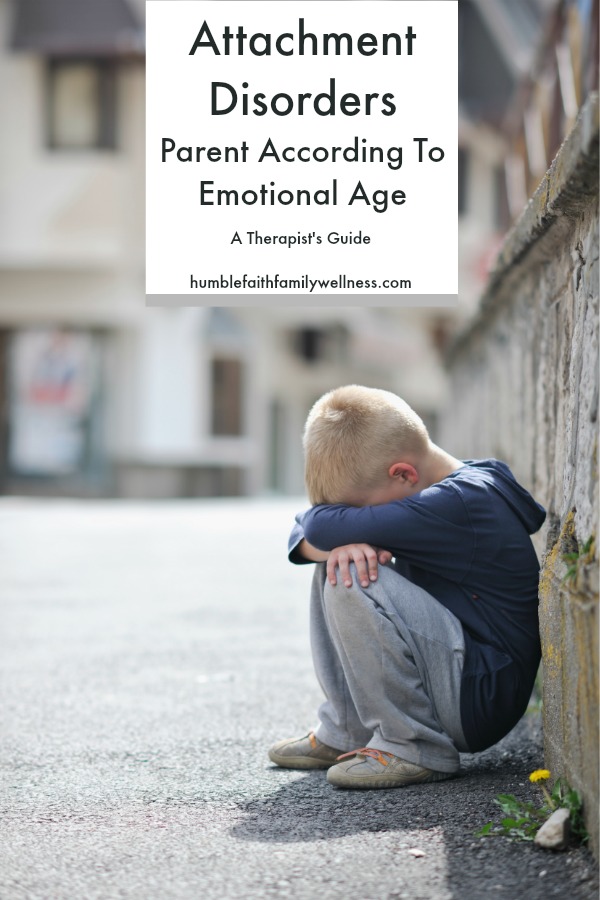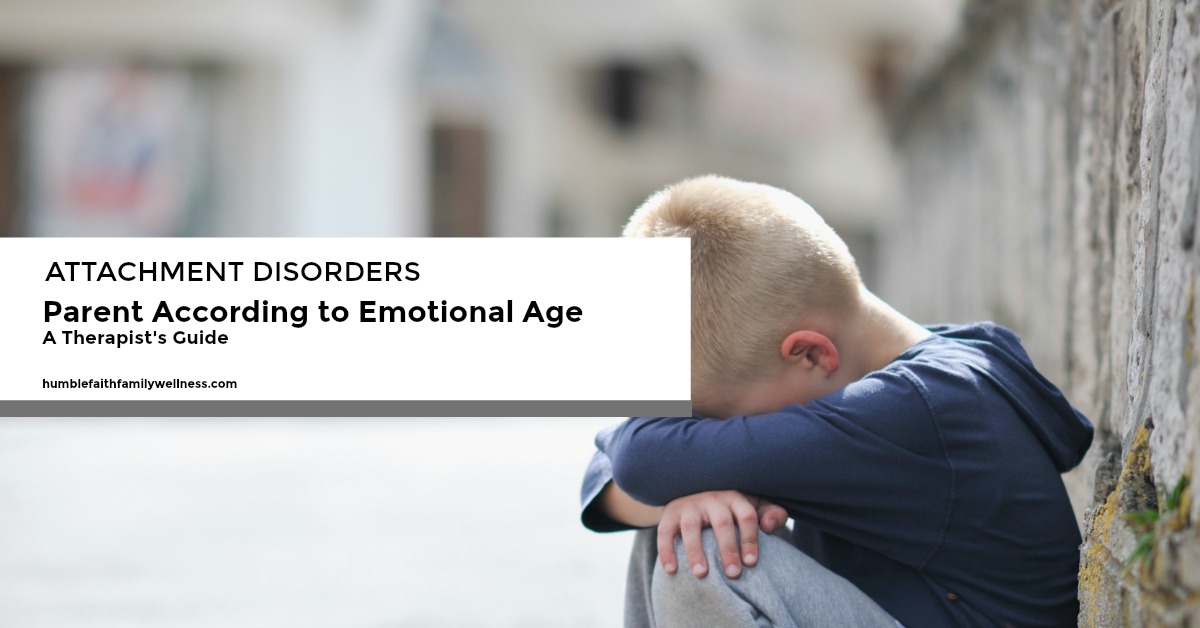
This post contains affiliates. The links come at no extra cost to you but I do receive a small commission if you use them.
Parent According to Emotional Age not Chronological Age
I am a Christian mental health therapist. Over the years I have worked with hundreds of adopted children and children who have been in the foster care system. It is a topic that God has placed near and dear to my heart!
It takes a special person and family to take in children and offer love and protection. I truly believe this is a calling from God for some individuals.
What I also have come to experience is there is not nearly enough information and training to help equip adoptive parents and foster parents to understand and help care for these children in the ways that they need.
Many children who are adopted or in the foster care system have attachment issues or a full attachment disorder. This is not a choice but rather how their brain has become wired to view the world. For more in depth information about attachment and attachment disorder refer to my post, Information You Must Know as an Adoptive Parent – A Therapist’s Guide to Attachment Disorders.
Emotional age
Emotional age is a child’s understanding of emotion and their ability to regulate or handle that emotion. Usually emotional age matches up with cognitive ability and chronological age (how old they are). So as a therapist I check my clients understanding of emotion to gauge their development in this area. This increases and develops and gets more complex just like our cognitive ability.
This is not always true even for children with more secure attachments. The child may be called immature for their age as a result. The child can be taught skills to better understand their emotions and/or how to handle them better.
But children with attachment issues generally have a larger gap between emotional age and how old they are. This is often due to lack of emotional care and support when they were infants and/or toddlers. I often hear from my clients who have adoptive children, “When they are upset they act like a toddler.” That’s because emotionally they are.
Check out my post, How to be a Better Parent by Understanding Emotions for more information about the process of emotions.
Meet a Child Where They Are
This is true of all children, but especially children with attachment issues.
I’m not really a fan of math. I did okay in the subject up to a point and then I was just lost. This was about my senior year. It didn’t make sense anymore. The teacher would talk in math terms that I didn’t understand. And honestly after a while I would just stop listening because it was going over my head. I’m fairly certain that class was my lowest grade in all of my schooling.
This is true with emotions, too. If we talk to kids in a way that we think they should understand, but they don’t, they are going to miss the point. We need to meet them on their level! A typical two-year-old responds to hearing the word “no” differently than an eight-year-old and a fifteen-year-old. We don’t expect a two-year-old to be able to verbally and rationally let us know they are disappointed and sad that they don’t get to do what they want. They show that by throwing a fit.
That doesn’t mean we like the fit but we understand why it’s happening. We soothe the two-year-old by letting them know we understand they are disappointed and we know it’s hard to not get what they want. We still remain firm in our “no” but we give support. (Please don’t give in because that makes the fits happen more!)
We offer less soothing for our eight-year-old and even less for our fifteen-year-old. Why? Because we believe they know how to handle their disappointment.
But if your adoptive child’s emotional age is far less they their chronological age, they are going to need more soothing. Because they don’t know how to handle their disappointment.
Help for emotional growth
There can also be emotional growth for children with attachment issues but it is going to take longer. Because it’s not just a matter of lack of natural development. There also are likely negative connections to emotions that they may or may not realize. Your adoptive child may have experienced emotional abuse, mind games, or confusing emotional messages. All of these past experiences, even if your child was an infant in the home, can negatively effect their emotional development.
There are many ways to help that can happen at home.
- Teach the basic emotions. These emotion eggs are great tools for this.
- Teach when a person would experience each emotion
- Give them examples of when you have experienced each emotion
- Ask them when they have felt the emotion
- Practice recognizing emotions
- pause a show or movie to ask what emotion you think they are having
- while reading ask your child what emotion the character is having
- people watch – you see a lot of expressed emotion in the mall
- Practice showing emotion through facial expressions, drawing, or emotion dolls like Meebie play therapy doll
- Be consistent and congruent (facial expression matches tone of voice and what you are saying) with your emotions. For example, don’t smile and say “I’m very disappointed in your behavior.” Or don’t tell them you are “fine” when you are crying.
A therapist may also be necessary for helping your adoptive child with emotional growth. As a therapist I wholeheartedly recommend researching the therapist you are going to meet with. Each therapist has greater experience and knowledge in specific areas. Ensure your therapist has a solid understanding in attachment issues and adoption. Otherwise you are likely going to be told that your child is “just being defiant and oppositional.”
I sincerely pray that this post helps you to greater understand you adoptive child and offers encouragement. Remember, while your child may not be biologically yours, God placed them in your home for a reason!
God Bless,
Melissa Gendreau

This is so true. I learned by recognizing the basic stages of growth, I could tailor my parenting strategies to match the kid. Even without trauma, maturation happens at different rates.
Maturation does occur at different rates. This is parenting advice that I give to all of my clients but there tends to be a larger disparity for children who have endured trauma. It can be so detrimental for them if they are not met where they are. Thank you for reading and commenting! God bless!
This is such a wonderful post and very helpful for all parents. Thanks for sharing!
Thank you for such kind words! Emotional age is helpful for parents to remember when having expectations and beneficial for the children to be successful! Thank you for reading and commenting! God bless!
This has been a helpful post as a parent. I guess I never thought about emotional age, but it makes sense. I feel for the kids who haven’t experienced attachment or love. Absence of those can create lifelong issues.
Thanks for sharing this!
There does tend to be a large discrepancy between emotional age and chronological age for children with attachment issues. This often can happen more than parents realize with children who have high cognitive abilities when they are younger. So parents may teach to the high intellectual ability and then forget that emotionally they may be age appropriate, or even younger. I’m glad the post was helpful! Thank you for reading and commenting! God bless!
Adopted children’s emotional age is often way below the actual age of the child because of all the issues they have faced. May God heal their inner being and enable them to flourish in their new homes!
Amen! This is my prayer with every adopted child I work with. Thank you for your prayers as well. God bless!